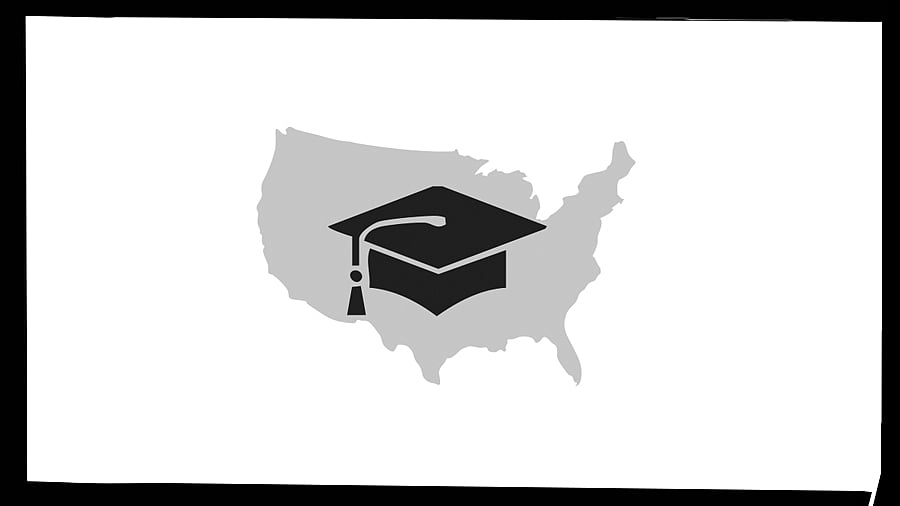
The Ivy League universities in the United States are among the world’s richest institutions. Cushioned by large endowments, they also are rich in terms of their scholarship, influence, and networks that make them the global stars of education. The daughter of Chinese President Xi Jinping studied at Harvard. The largest international donation (some Rs 400 crore) to the Harvard Business School came from the Tata group. Along with other select US universities, these institutions stand as icons of stature and achievement. Sometimes decried as islands of privilege, the universities are nevertheless central to the story of America and its global leadership. All US universities together attract more Indian students (331,602 Indians, followed by 227,398 Chinese students for 2023-24, according to Statista) than any other non-US nationality.
The standing and money power should, in normal circumstances, work as a shield that protects these institutions from rough weather. Large endowments quite naturally, it would seem, help keep future operations and growth free of any material worries. But in the complex turn that America has taken today, it is the very standing and money power that have contributed to putting the universities in the centre of a firestorm unleashed by the Trump administration. Protecting and growing the endowments, which the US institutions do rather well, has brought with it charges (whether fair or unfair) that the universities spend more on investment managers to grow their kitty rather than on growing a mission to deliver education for all.
Have the US universities become prisoners of their endowments, making them more vulnerable than they should be? Prof Rashid Khalidi, a renowned Palestinian-American historian at Columbia, put it in these words several months before the current crisis erupted: “For some time now, I have been both disgusted and horrified by the way higher education has developed into a cash register – essentially a money-making, MBA, lawyer-run, hedge fund-cum-real estate operation, with a minor sideline in education, where money has determined everything, where respect for pedagogy is at a minimum.”
Trump and his friends might agree as they gather under the label of Trumpism to declare war on the education system in America. An amalgam of MAGA (‘Make America Great Again’) politics, with its conspiracy theorists, anti-globalists, and extreme-right conservatives, wrapped in braggadocio that is now the staple of US officialdom, demands that universities follow federal diktats on all manner of functions and operations. Some like Harvard are boldly fighting it out, while others like Columbia have caved in. Harvard, too, was quiet in the initial two weeks of April this year when a list of demands arrived from the White House and only later broke that silence when new demands got added to the original ones.
The overall picture today is of universities with their backs to the wall, straining to defend their freedoms without going for an all-out fight and holding on only where the administration’s demands are so egregious that they are almost impossible to meet. Mostly, the picture is of these institutions looking for a way out.
For example, while there are some statements of support from across universities, the institutes have not put up a robust joint front against the Trump administration, or are unwilling and/or unable to take the issue aggressively to the public or are willing to set up regulations that meet some demands and in the process, showing up the once-powerful bodies as weak and easily trampled upon.
Dissent from within
Consider the imposing Massachusetts Institute of Technology, MIT. The 164-year-old institution runs a rather popular game called The Moral Machine to understand how humans might want autonomous vehicles to respond to unavoidable accident scenarios in the real world. The Moral Machine has collected 39.61 million decisions in 233 countries, dependencies or territories, according to one paper. For all its efforts to understand the moral dilemmas brought up by the use of modern systems, it took one student and a speech of less than four minutes to hold a moral mirror to the institute. MIT is among the US universities to have research ties, funding or contracts with the Israeli military that runs a genocidal operation in Palestinian territories. MIT has received over $11 million in research funding from the Israeli Ministry of Defence, according to May/June 2024 ‘The MIT Faculty Newsletter’, an independent forum for the expression of faculty views and concerns.
Taking the stage at the pre-convocation festivities, the elected Indian American president of MIT’s Class of 2025, Megha Vemuri, torched the institute she is graduating from: “We will carry with us the stamp of the MIT name, the same name that is directly complicit with the ongoing genocide of the Palestinian people, and so we carry with us the obligation to do everything we can to stop it. Class of 2025 – you are MIT. Pressure is nothing to you.”
The bold protest speaks of the merits of a US campus where students find ways to be engaged in events beyond the textbooks and learn to take a stand, add to it the passion, energy, and care-a-damn attitude of their youth to
turn it into a potent protest. This is unlike India, where voices don’t emerge and are put down when raised, as seen in cases like a teacher who was dismissed in one Mumbai school just because she liked a post that spoke of Israel’s genocide.
On the other hand, MIT’s statement in favour of free speech that followed Vemuri’s speech rang hollow because the president of the class was barred from attending her own graduation. While MIT runs the moral machine and does some exemplary research, Vemuri and her classmates showed that they are moral humans pointing to holes in the imposing edifice of MIT and indeed, the entire lot of US schools.
(The writer is a journalist and faculty member at SPJIMR;
Syndicate: The Billion Press)